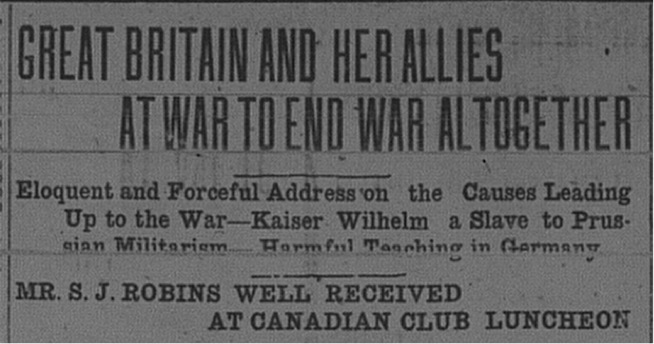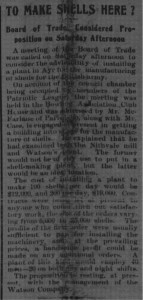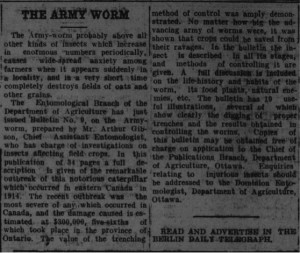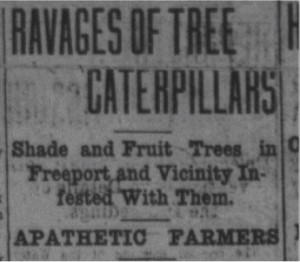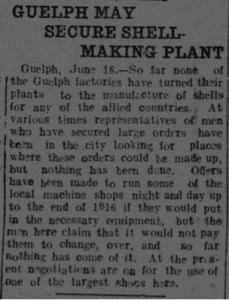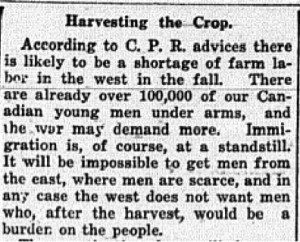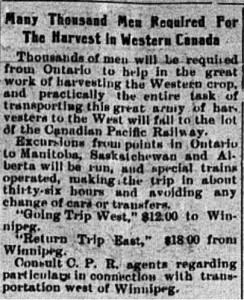A handful of editorials throughout January criticized German militarism and tyranny. German belligerence was frequently juxtaposed against the democracy and freedom of the British Empire. Yet, while supportive of the war, the articles differentiate between the majority of Germans on one hand and the militarized, German elite on the other. Indeed, the fight against “Prussian Militarism” was presented by the war’s proponents as the primary reason for continuing the fight against Germany.
Similar opinions were being propagated in the Waterloo Region itself. In late January, The Waterloo County Canadian Club hosted a luncheon with guest speaker S. J Robins at Waterloo’s Mason Hall. Members of the Canadian Club were said to have thought well of his opinions on the current war and the state of the German nation, which Robins saw as divided between the majority of Germans and a powerful minority of militarized elites.
(“Great Britain and Her Allies at War to End War Altogether,” Waterloo Chronicle-Telegraph, 28 January 1915; “It is a War to Free World,” Elmira Signet, 14 January 1915; “It is a War to Free World,” Ayr News, 21 January 1915; “Germany Found Wanting,” Elmira Signet, 7 January 1915.)
